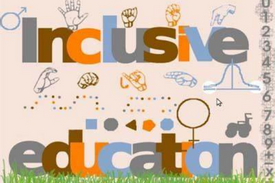
The term “inclusive education” refers to all students attending the same classes and institutions. For previously disadvantaged communities, it encompasses educational opportunities.
In order to guarantee that all students have access to a high-quality education, inclusive education effectively addresses their diverse needs in a manner that is accommodating, kind, polite, and motivating.
With assistance offered to minimise and remove any obstacles or other barriers that may lead to exclusion, students participate in the educational programme in an environment where everyone may learn together.
Systems that are inclusive acknowledge the unique contributions that students from diverse backgrounds make in the classroom and give the opportunity for varied groups to coexist and grow together for the benefit of everyone.
Importance of Inclusive Education
Respecting each person’s variety and unique combination of talents and limitations is essential to inclusive education. It is both an educational idea and a crucial life skill. An essential early achievement, on par with academic achievement, is learning how to interact and work cooperatively with others who are different from themselves.
Children develop into adults who live in a society where others are unlike them. Every child has the opportunity to take part in their community, develop a sense of belonging, and increase their level of preparedness for community life as both children and adults.
It provides better learning opportunities. Children of all ages and academic abilities are usually more motivated to learn in classrooms with other children. It encourages parental involvement in their kids’ education and what’s going on in the local schools.
It also fosters a feeling of community and respect. It also provides an opportunity to learn about and accept the diversity of people. In addition, it offers all children the chance to get along and develop friendships. Friendships provide opportunities for growth and serve as role models.
